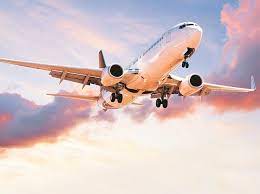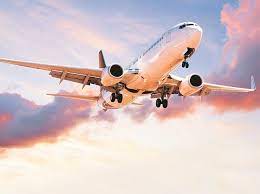
Global airlines are desperate for governments to align incoherent border rules so that the global airline industry is able to avoid a relapse into recession, the International Air Transport Association (IATA), which groups 290 airlines, said, while also expressing positive sentiment about realizing of pent-up demand.
This is the first meeting of the global body since the airline industry was severely hit by the Covid-19 pandemic.
The industry's fragile recovery, following its worst ever recession because of the pandemic, from the pandemic was being hampered by ambiguity over travel bans, the IATA said.
"People want to fly. We've seen strong evidence of that," said Director General Willie Walsh. "They can't fly because we have restrictions that are impeding international travel."
According to estimates of the IATA, international travel will increase by more than double next year in comparison to the pandemic's low levels, reaching 44 per cent of pre-crisis levels of 2019. Domestic travel, on the other hand, is expected to reach 93 per cent of pre-pandemic levels.
The variations in entry rules and testing requirements across the top 50 air travel markets were attributed as the reasons for the disparity to wide variations by the trade group, which includes dozens of state-owned carriers.
Travel restrictions prevented even some of the executives of airline and leasing companies from attending the industry's annual meeting in Boston or were forced to keep additional time at hand to account for quarantine after they entered the United States.
At the meeting, the airlines demanded that government should end travel restrictions for vaccinated travelers as well as for drawing up and implementing common health protocols at borders. They however noted that global coordination in aviation tends to move at a deliberate pace.
"Frankly, governments haven't made it easy for airlines or for the traveling public to understand what the rules are to fly," said Joanna Geraghty, president of JetBlue which hosted the gathering in a hotel shared with domestic tourists.
Bookings in reopening markets such as the United Kingdom and the United States had "gone up exponentially", said the CEO of Dubai's Emirates, who has been among the CEOs who have been the most upbeat executives about the prospects for recovery after restrictions are lifted.
"That reflects a bow-wave of demand that we are seeing everywhere," its president Tim Clark said. "The demand for air travel will restore itself... sooner rather than later."
The plans of the Biden administration to allow air travelers from 33 countries, including Europe, into the United States on the critical trans-Atlantic route in November were encouraging for airlines.
The airlines however said after the Boston meeting that their balance sheets were severely strained with Clark predicting that for the next 2-3 years, most airlines would be averse to taking risks and be focused on gaining back a strong cash position.
While lashing out at airports and other suppliers for not doing enough to co-shoulder the hit to the airlines by the pandemic, IATA also warned that serious challenges remained for carriers.
No date for lifting travel restrictions for Europeans has yet been set by the White House and according to expectations of JetBlue that could happen prior to the Thanksgiving holiday in the United States.
"If the reopening is delayed, we are going to face consequences across the industry," Chief Executive Robin Hayes said.
The airlines agreed to a target of reaching net zero emissions by 2050.
(Source:www.moneycontrol.com)
This is the first meeting of the global body since the airline industry was severely hit by the Covid-19 pandemic.
The industry's fragile recovery, following its worst ever recession because of the pandemic, from the pandemic was being hampered by ambiguity over travel bans, the IATA said.
"People want to fly. We've seen strong evidence of that," said Director General Willie Walsh. "They can't fly because we have restrictions that are impeding international travel."
According to estimates of the IATA, international travel will increase by more than double next year in comparison to the pandemic's low levels, reaching 44 per cent of pre-crisis levels of 2019. Domestic travel, on the other hand, is expected to reach 93 per cent of pre-pandemic levels.
The variations in entry rules and testing requirements across the top 50 air travel markets were attributed as the reasons for the disparity to wide variations by the trade group, which includes dozens of state-owned carriers.
Travel restrictions prevented even some of the executives of airline and leasing companies from attending the industry's annual meeting in Boston or were forced to keep additional time at hand to account for quarantine after they entered the United States.
At the meeting, the airlines demanded that government should end travel restrictions for vaccinated travelers as well as for drawing up and implementing common health protocols at borders. They however noted that global coordination in aviation tends to move at a deliberate pace.
"Frankly, governments haven't made it easy for airlines or for the traveling public to understand what the rules are to fly," said Joanna Geraghty, president of JetBlue which hosted the gathering in a hotel shared with domestic tourists.
Bookings in reopening markets such as the United Kingdom and the United States had "gone up exponentially", said the CEO of Dubai's Emirates, who has been among the CEOs who have been the most upbeat executives about the prospects for recovery after restrictions are lifted.
"That reflects a bow-wave of demand that we are seeing everywhere," its president Tim Clark said. "The demand for air travel will restore itself... sooner rather than later."
The plans of the Biden administration to allow air travelers from 33 countries, including Europe, into the United States on the critical trans-Atlantic route in November were encouraging for airlines.
The airlines however said after the Boston meeting that their balance sheets were severely strained with Clark predicting that for the next 2-3 years, most airlines would be averse to taking risks and be focused on gaining back a strong cash position.
While lashing out at airports and other suppliers for not doing enough to co-shoulder the hit to the airlines by the pandemic, IATA also warned that serious challenges remained for carriers.
No date for lifting travel restrictions for Europeans has yet been set by the White House and according to expectations of JetBlue that could happen prior to the Thanksgiving holiday in the United States.
"If the reopening is delayed, we are going to face consequences across the industry," Chief Executive Robin Hayes said.
The airlines agreed to a target of reaching net zero emissions by 2050.
(Source:www.moneycontrol.com)





